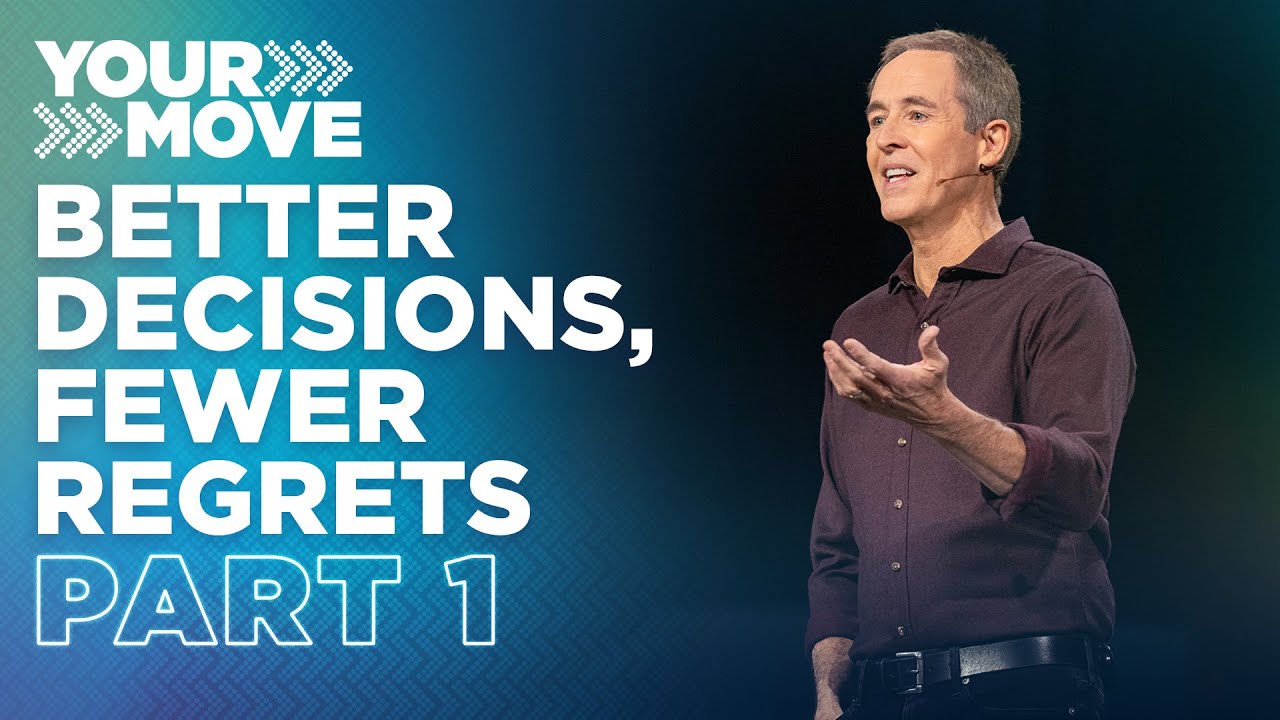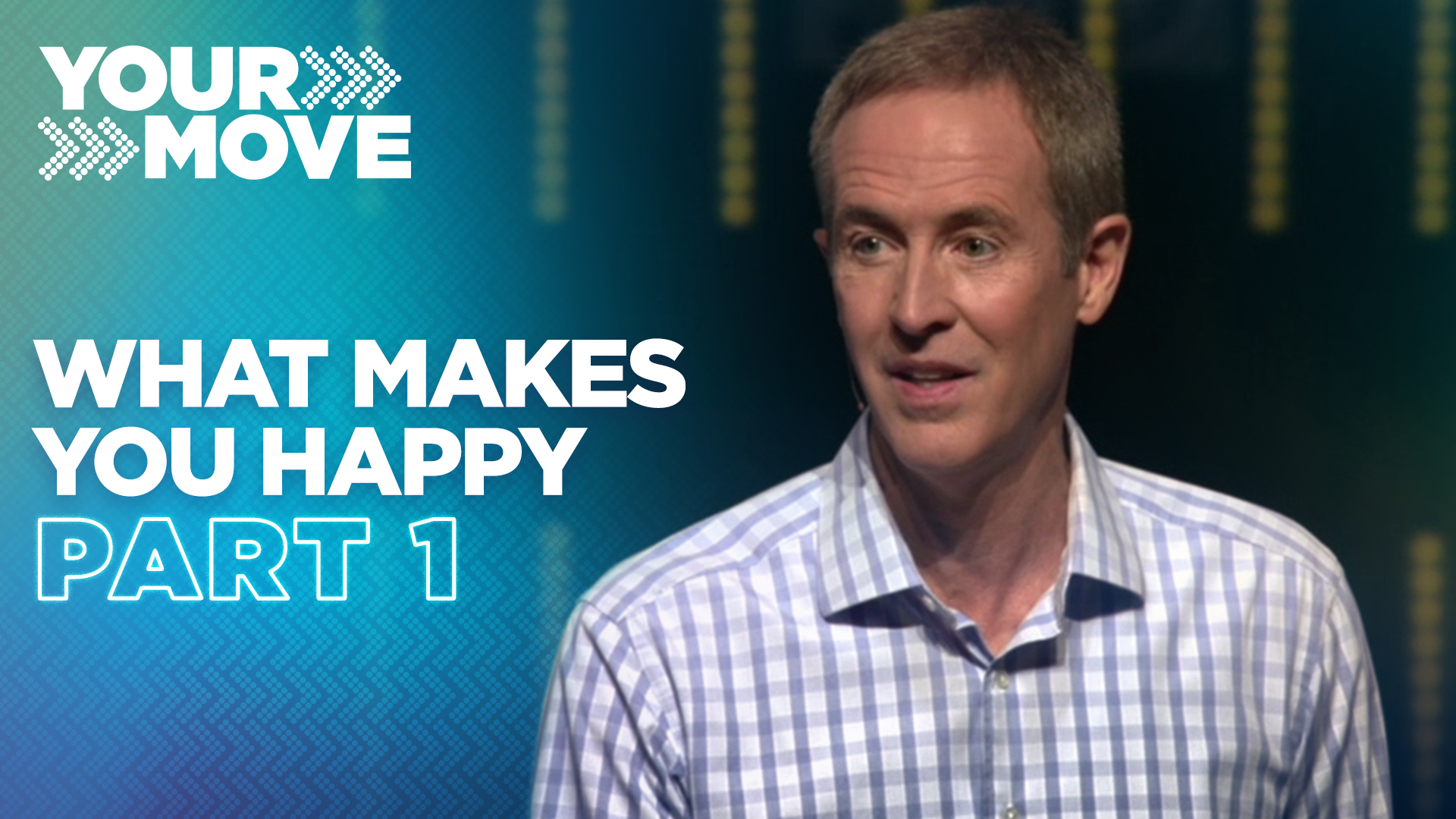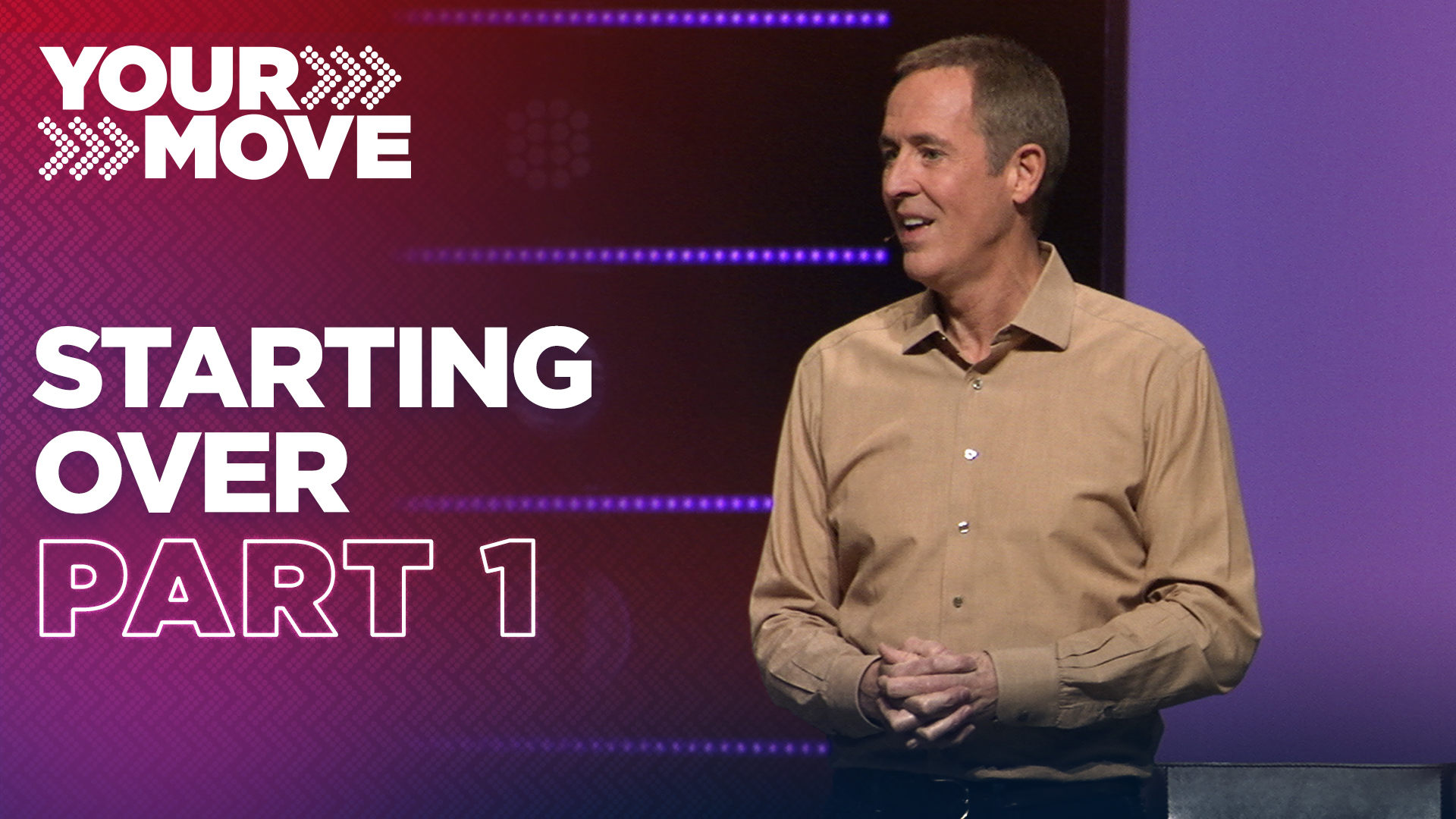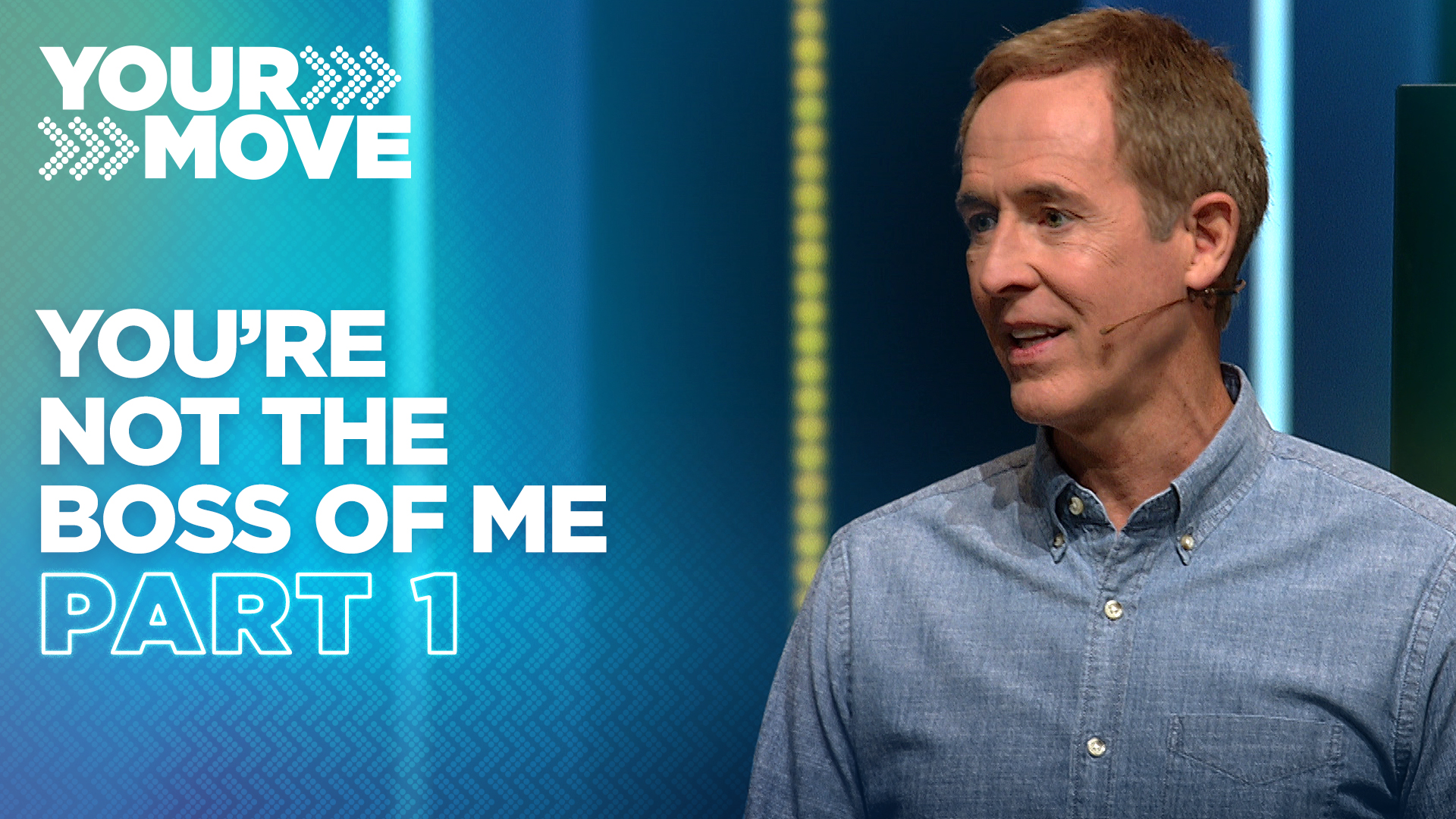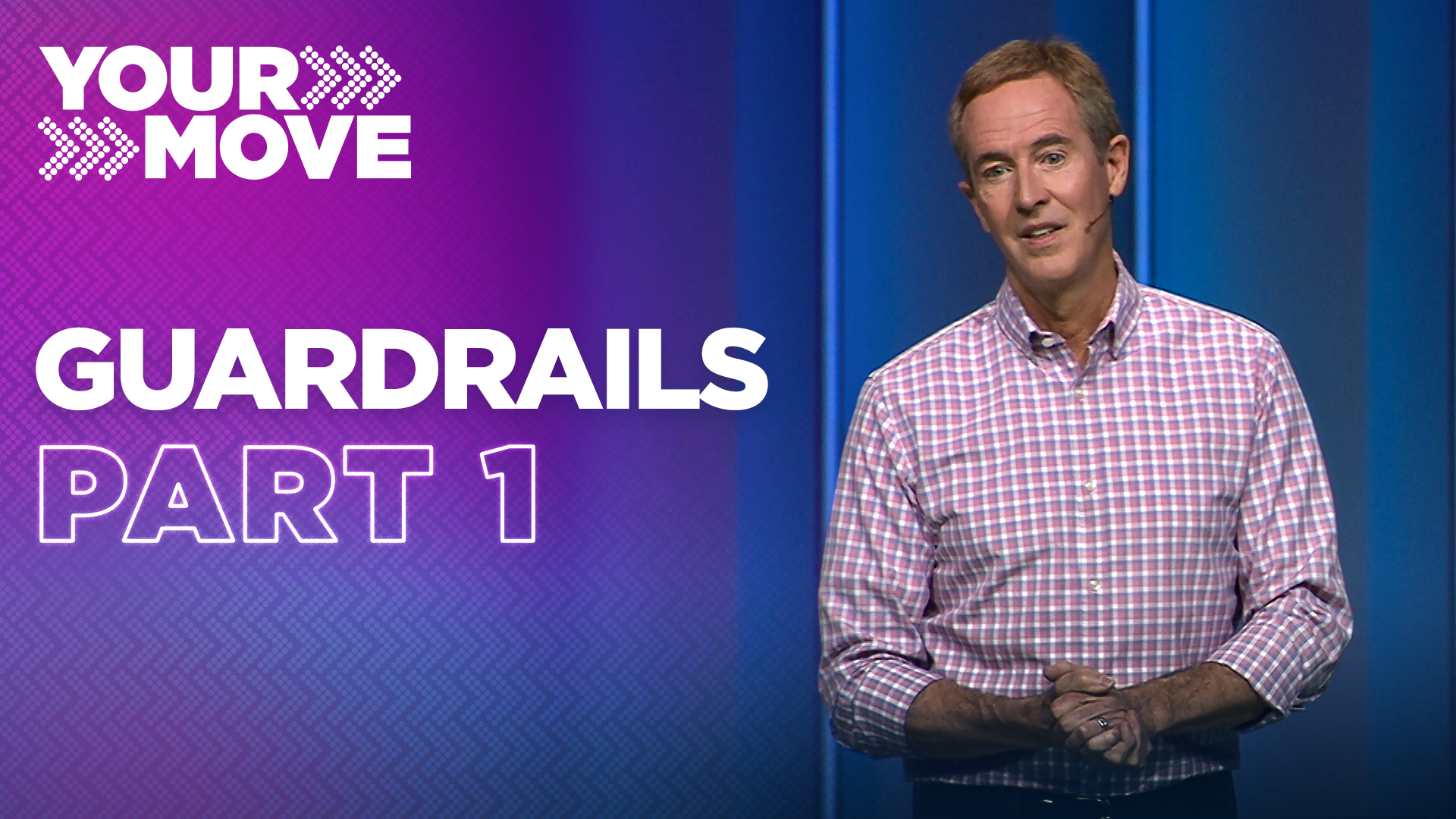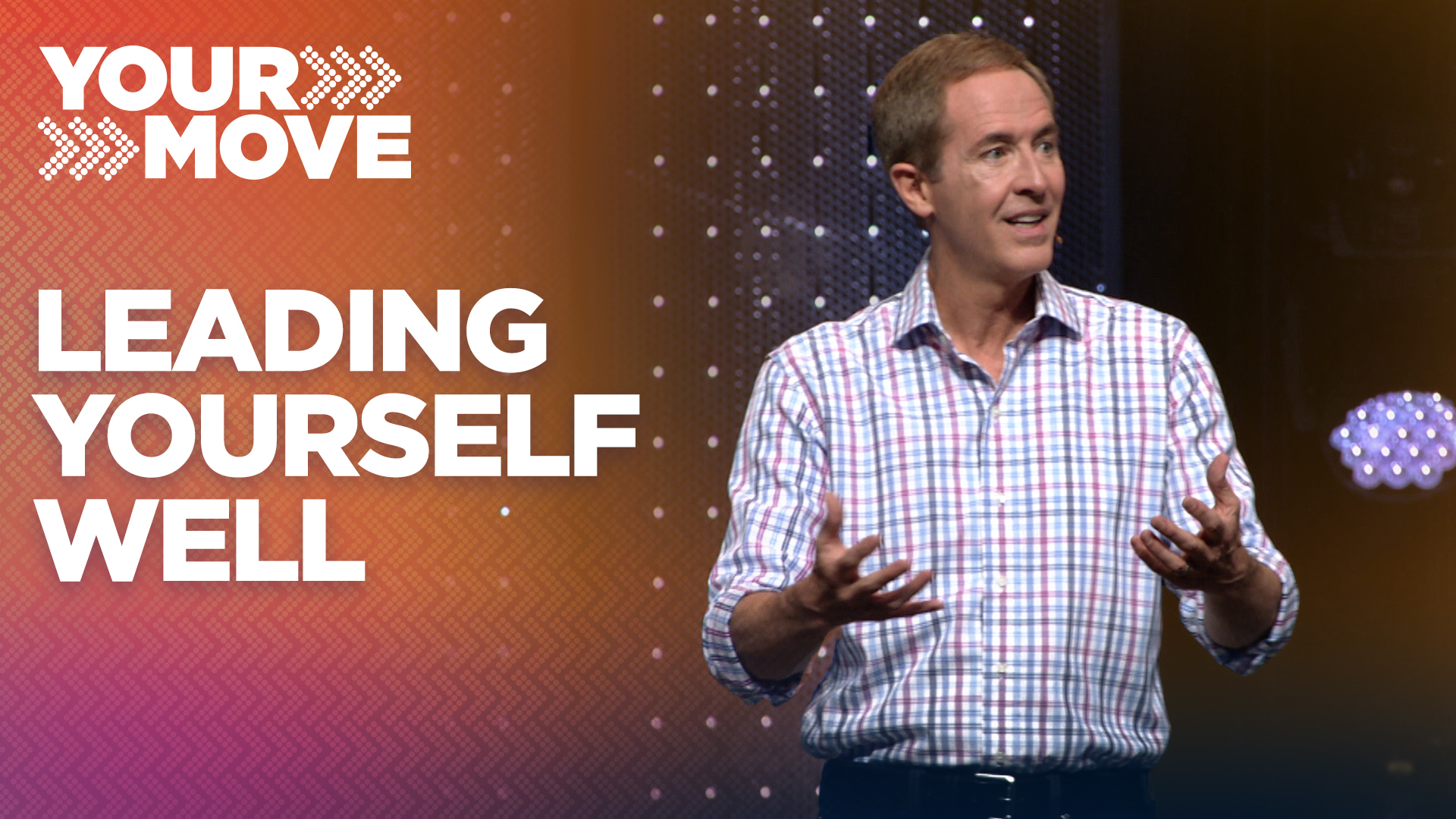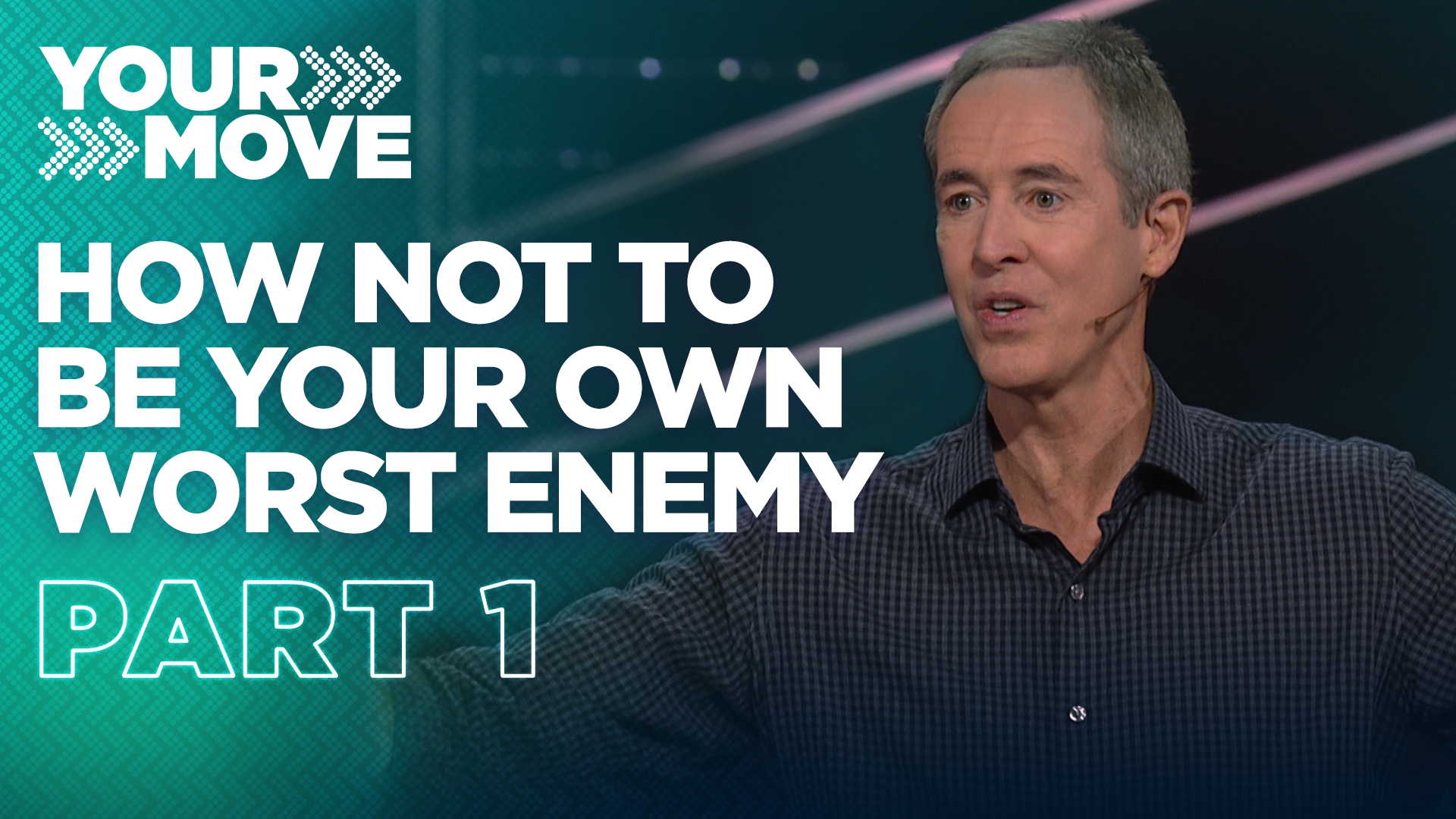Have you ever thought “how could someone do that and live with themselves?” Truth is you could do the unthinkable and live with yourself, people do it all the time. Want to ensure it doesn’t happen to you? We’ve got you covered.
NOTE: The following content is a raw transcript and has not been edited for grammar, punctuation, or word usage.
So here’s something we’ve all thought, and perhaps something at some point along the way you have said out loud after someone was found out. Every week somewhere in the news or whatever your news feed is or whatever you look at, there’s somebody who’s found out. In other words, they had a secret. They had something going on in the background and now everybody knows or maybe it’s someone in your personal life or in your family or somebody at work and they’re found out. Suddenly, it’s been discovered that they’ve been living a double life. They had something going on nobody knew about and harboring a secret or maybe you even consider it a secret sin, and lying to the people that are closest to them, lying to the people that depend on them, lying to their family, maybe lying to their constituency, lying to the people at work. And now they’ve been discovered and they’ve been called out and they’re caught.
And when that happens and you get kind of the nitty-gritty of the story and all the details, you’ve thought or maybe you’ve even said to someone, “Ugh, how could they live with themselves? How can you be this publicly and this privately? How can you be this in this group, but this with his other group? I don’t know how those folks, I don’t know how he, I don’t know how she live with themselves. How could they carry on for so long with that going on in the background? How could they carry on without melting down? How did they keep up the charade? How did they live with themselves, right?
Or how did they show up at church? Or let me bring it into my industry. [chuckle] How do they show up at church and preach and have that going on in the background, right? There’s been a few of those stories. ‘Cause when the truth comes out, when the story breaks and the family is devastated and reputation is ruined and career is destroyed, we think, “How could they live with themselves?” And behind how could they live with themselves is this assumption. [chuckle] “I couldn’t live with myself.” The reason it’s so difficult to imagine how they live with themselves is you put yourself in their situation, you think, “I couldn’t live with myself and do what they did in light of how it was gonna impact the people that supposedly they love, say they love and the people that have put their trust in them.”
You and I, we say, “Oh my conscience, my integrity wouldn’t allow me to live with myself with that going on.” But the truth is, you could live with yourself. You couldn’t live with your… And this is what we’re gonna talk about. You couldn’t live with your current self. But if left unattended, if neglected, your current self may not be your future self. Left unattended, your future self could be someone who you wouldn’t even recognize, that you might despise. A version of you that you could in fact live with yourself in spite of the unhealthy version you’ve become. And the reason this happens… You know why this happens? The reason this happens, this is so deep, okay.
The reason this happens is because people think, “It can’t happen.” That’s why it happens. But this happens to people ’cause they think, “Well, that could never happen.” Specifically, “That could never happen to me. I couldn’t get to the point where my external life and what people see is so far afield and so far away from what I am on the inside. That couldn’t happen to me.” And the reason it happens to people is because the assumption is, “It can’t happen to me.” And the best way to keep that happening to you, and the best way for that not to happen to us is to ensure that it could, to assume rather that it could, and then to take steps to ensure that it doesn’t. And that’s what this series for the next three weeks is all about. Living with Yourself: Three Habits to Safeguard Your Soul.
Living with Yourself: Three Habits to Safeguard Your Soul. Three habits to ensure that the self you’re living with is the self that’s on display. Habits to ensure that what people see is what they’re actually getting. Now, here’s what you all know. You don’t have to live very long to know this. Life is hard on our souls. And when I say soul, I’m just talking about your interior life, that inside part of you, the part that fears and worries and hopes and dreams and wishes and experience disappointment. And we put on a happy face, and we go to work. And we go to school, and we hang out with our friends. And we’ve got a public life. But your soul, that inner part of you that only you know about, life is hard on that.
And here’s the thing. Healthy souls even if you’re super healthy right now, healthy souls if unattended to become unhealthy because nothing gets better when left unattended. And here’s the thing. Whether it’s our appearance or our performance or our reputation, we attend to those outward things because, well, people are watching and people are expecting and we’re competing and we’re competing for approval and acceptance and progress.
So it’s natural to pay attention to the exterior. We all do that. By the way, you all look fabulous. You’re so well behaved. You’re facing forward. But anyway, but there is only… Come on, there’s only one person… You know this. There’s only one person who can be attentive to your soul. There’s only one person that can be attentive to what’s going on in your heart, and that’s you. And here’s why this is so important. Here’s why we’re gonna talk about it for the next few weeks.
The health of your soul, the health of your soul determines your capacity for duplicity. The health of your soul, what’s happening on the inside of you, determines your capacity for duplicity. Here’s what I mean by that. Duplicity is I’m one person with this group, I’m another person with another group, or I’m one person on the outside, I’m a completely different person on the inside. And the health of your soul, how you care for your soul, determines your capacity, that is, how much duplicity can you stand? How much duplicity can you live with determines your capacity for duplicity, the ability to live with a version of yourself that you don’t really like. It determines how wide… This is important. How wide the gap is between who you are and who you pretend to be and how far that can expand before you finally crack or confess or break down. So the health of your soul determines your capacity for duplicity, which means a healthy soul… Listen, a healthy soul has very little tolerance for duplicity. A healthy soul realizes, “Uh-oh, what’s going on on the inside isn’t what’s reflected on the outside, and what’s reflected on the outside is better than what’s on the inside, and I’ve got some work to do.” That’s what healthy souls do. They stay one. There’s integrity. The inside and the outside are in sync.
The health of your soul determines your capacity for compartmentalization. I mean, that’s there, and this is here. It determines your capacity for hypocrisy, how willing you are to lie to other people and how easy it is for you to lie to yourself, to posture and to pretend. It determines whether you choose to close… The health of your soul determines whether you choose to close the gap between who you are and who you should be or merely manage the gap. And managing it eventually breaks down and what’s on the inside eventually breaks out.
So here’s the point. Do not kid yourself, and I won’t kid myself. And let’s not kid ourselves, but don’t kid yourself. This is the bad news. You have the potential to become someone you would despise if you met them. You could become the unimaginable. You could do the unthinkable and live with yourself. People do it all the time, and they do it all the time because they think it could never happen to them. And the difference between those who avoid this and the difference between those who don’t is the health of their soul, their willingness and ability to monitor and pay attention to what’s going on on the inside. So in this series, we’re gonna talk about three habits to ensure that that does not happen to you even though you are a candidate, even though you have the potential, just like I do. Three habits to safeguard your soul.
Now, before I tell you the first habit, we’re gonna talk about the first one today. I wanna set it up by reading to you some statements from a letter the Apostle Paul wrote to Christians living in first century Rome. We call it the book of Romans. Paul had never been to Rome and he didn’t know most of these people, but he kind of outlines and describes his version of what it means and what it looks like to follow Jesus. And in the passage we’re gonna look at, he asked these people he’d never met to do something that on the surface seems so irrational and so illogical, I’m sure when they read it, they kind of tapped the brakes a little bit like, “I don’t know.” And when I read it to you, even though many of you have read this before and heard this before, we’ve certainly talked about this before, the temptation, the tendency is to kinda tap the brakes a little bit because this seems so unreasonable. But he’s about to make the case that, “No, this is the most reasonable thing you can do, but to do that, it’s gonna require a shift in your thinking.”
Here’s what he says, “Therefore, I urge you.” He’s leaning in. He’s grabbing us by the collar and saying, “Come on. If you haven’t heard anything else I’ve said, don’t miss this. I urge you.” “Therefore, I urge you, brothers and sisters, in view of God’s mercy.” Here’s the twist. Not in view of God’s authority. Not in view of God wagging His finger in our face. Not in view of God’s rules and laws and commandments.
He’s like, “No, no, no. That’s not how the Christian faith works. We don’t do things in order to gain God’s love and approval. We do that because He’s given us His love and approval and His mercy and His grace.” He’s like, “In view of everything God has done for you, everything God has provided for you. And brothers and sisters in view of God’s mercy.” He says, “Here’s what I want you to do. In view of God’s mercy to offer… To offer. Therefore, I urge you, brothers and sisters, in view of God’s mercy to offer.” That is choose willingly to present, to yield, to submit, to place at God’s disposal. “Your bodies.” And in the context, he’s talking in, this is all of you. This is the inside of you and the outside of you. This is the exterior and the interior. He says, “I want you to present your whole self inside and out, everything about you to God.” And then this is where it gets a little crazy.
“As a living sacrifice,” which means nothing to us because we don’t do sacrifices. But in this culture, it was a physical thing that people did all the time in every pagan culture and in Jewish religion, ancient Judaism. There were physical sacrifices. Everybody had a visual of this, that you took an animal and the animal died. Animals did not survive sacrifice, and Paul’s going, “Okay, stay with me. I want you to consider presenting yourself to God as a living sacrifice. The good news is you don’t have to die, but the bad news is you have to be willingly submit yourself to God.” To which we say, “Okay. Yes, you’re going a little fast.” Okay. Offer my entire self to God?
What if I just call on God when I need Him? I mean, isn’t that good enough?” Well, let me tell you about that approach. You know this, if your approach to faith and Christianity is, “I call on God when I need Him,” then you have to call on God more often than the people who surrender ’cause you need Him more ’cause you keep getting yourself in trouble. You keep doing that stupid thing over and over and over.
And I can prove it. Because your greatest regret, took place during a time, right? Of, “I’ll call on God when I need Him,” season.
You were in a “I’ll call on God when I need Him” season. You were not surrendered to the will of your Heavenly Father. You were in the “I’ll call on God when I need Him” season. And then because you mistakenly thought… And I’m pushing a little bit. You mistakenly thought you could pray your way out of a situation you behaved your way into. “Oh, certainly, if I get in trouble, I’ll call on God and I can pray my way out of a situation or circumstances I behaved my way into.” It doesn’t work that way, and God didn’t come through. And you wondered, “What’s up with God?” [chuckle] And God wondered, “What’s up with you?” [laughter] I already covered this. Look, I have sent My Son into this world to pay for the sins that you just committed that is undermining your own success, your own relationships, your own future.”
“You continue to sin. I have paid for your sin, but I’m inviting you to live a different life. I’m inviting you to follow My Son. I’m inviting you to surrender yourself to me and trust me. Then Paul assures us that presenting ourselves to God as a living sacrifice, as crazy as that sounds, as it sounded especially to them. He assures us that this is not unreasonable. He assures us it’s actually the opposite. So I’m gonna give you kind of a little, I don’t know, kind of awkward, gritty sort of literal translation of what he writes next. And I’m gonna throw a little Greek word at you because this is so amazing. Here’s what he says next. He says, “Offer your bodies as a living sacrifice.” Oh, that’s irrational. That’s crazy. Who would do that? Which is, this is amazing, which is the logikon.
This is the Greek word logikon where we get the word logic. He says, “This is the most logical and reasonable thing you could possibly do.” “Wait. Surrender my life, my body, everything about me to God is the logical reasonable thing to do?” And Paul’s like, “Absolutely.” Well, what do you mean? Why? And Paul would say, your Heavenly Father would say, Because God loves you and God is for you. And God created the human race, which means God knows what’s best for you, and He knows what’s not best for you.
So why would you not surrender to your Heavenly Father who loves you and invites you into a life where the God who cares for you is willing to guide and direct your life, but He is not gonna force His will on you. It’s by the mercies of God, not by the power, authority and the force of God because love doesn’t operate that way.
This is the framework for the entire Christian life, that we respond not to God in order to gain something. We respond to God because he’s given us so much. In light of all that He’s given us, the most logical thing I can do in the morning is to get on my knees and surrender my life once again to my Father in Heaven. Now, the Apostle Paul, this is such a big deal, he actually teased this same idea out earlier in this letter to Christians who are living in Rome, first century Christians living in Rome, in Chapter 6 of the Book of Romans, but there he states it negatively. So let me read you this version as well, then we’re gonna talk about this first habit. Here’s what he writes in Romans Chapter 6. The first one was Do this.This is Do not. “Do not offer any part of yourself to sin.” This is so cool. The Apostle Paul personifies sin. He acts like sin is an entity, a living, breathing entity, which makes it a lot easier to understand sometimes what’s going on inside of us because there’s somebody in there. I mean, what is wrong with me? I do the very thing I say I’m not gonna do. What is that? Paul talks about that.
I think the things I’m not supposed to think, I behave the ways I committed not to and I did it again. What’s wrong with me? Paul would say, Look, don’t ask me to explain it. That sin, there’s that thing in you. “Do not offer any part of yourself to sin as an instrument of unrighteousness.” Apparently, we’re gonna offer ourselves either to God or to sin, according to the Apostle Paul, and the best way to understand sin in the New Testament is this word, selfishness, my way, my appetites at your expense, my appetites at your expense,
He says, “Don’t let sin reign in your body, but rather offer yourselves… ” Here it is, what he said in Chapter 12, “Offer yourselves to God as those who have been brought from death to life.” And here’s the applicable part, here’s the application part, “And offer every part of yourself.” Imagine if you did this, imagine if you had been doing this. “And offer every part of yourself to Him, God, as an instrument of righteousness. He’s saying to this audience, “I want you to offer your ears, what you listen to, I want you to offer your eyes, what you look at, I want you to offer your mind, what you think about, I want you to offer your hands, what you do, I want you to offer your feet, where you go, I want you to offer your resources that you’ve been entrusted with, I want you to offer your hopes and dreams and desires. I want you to offer everything to God and say, “God, I see all these as instruments that you can use for your will, and they are available to you. I’m surrendering all of me with your intent and with your purposes and your agenda and mind.”
And then what follows is one of my favorite little phrases in the New Testament. It’s easily misunderstood because the way it shows up in our English text. He says, “If you do this… ” This is amazing. Here’s the promise, here’s the pay off. “If you do this, then sin shall no longer be your master.” Maybe a better translation is, “For then if you do this,” it follows right after that, “For then sin shall no longer be your master.” Again, he personifies sin like sin is a thing.
And I’ll make it more practical, less theological. When you say yes to selfishness, selfishness becomes your master. And do you know where master selfishness will take you and direct you and guide you and order you? To the land of self-centeredness. Master sin will order you to say yes to you every opportunity it can, every chance it gets. In fact, master sin, that’s how masters sin defines freedom and liberation. You can be free, you are free to do whatever you want to do and because you’re so smart, you’ll never be caught, because you’re so crafty, she’ll never find out, because you’re so deceptive, they will never know. You can do whatever you wanna do. Say yes to yourself. Live in the land of selfishness and self-centeredness. But ultimately… And most of us have lived long enough to know this, and still, we fall for it. Ultimately, do you know what self-centeredness ultimately liberates you from? From you. You’re divided. You wake up one day and you realize, “I’m two different people. I’m what they see, I’m what they’re actually getting. I’m the person she thinks she married, but I’m not that. I’m the person he thinks he married, but I… What I am, there is such a gap between what I present and who I actually am, and I’ve gotten accustomed to living with myself in this duplicity.
And do you know what the person who’s been there, done that and clawed their way back and tried to patch their life back together, do you know what they would tell you? I don’t know their exact words, it would sound something like this, “I urge you, I urge you in view of God’s mercy, because, look up here, master sin, master selfishness, master it’s all about me, has no mercy. Sin and selfishness and self-centeredness always baits you to the threshold of disaster, then stands back, and once you step over it, sin and selfishness shames you for what it baited you to do to begin with.”
To offer, to finish the text, “I urge you, therefore in view of God’s mercy to offer your bodies as a living sacrifice.” This is what somebody who’s been there and done that and came back would tell you, that holiness, pleasing to God, this is your true and proper worship. This is the English version, this is the most logical thing you could possibly do. Then he continues, Paul continues, and again, here are some very familiar words, but this is the context that they were spoken into, “And do not… ” Here’s another do not. “And do not conform to the pattern of this world. The pattern of this world will split you in half, the pattern of culture will split you in half. It will put you at the center of your life and then you will become small, because self-centeredness makes you and makes me small.
He says, “But,” here it is, “Be transformed by the renewing of your mind. And then… ” Here’s another pay-off, “And then if you do this, surrender, allow God to renew your mind, surrender everything, then you will be able to test,” that is discern through the options. “You’ll be able to test and approve, “Oh, I recognize what it is,” what God’s will is.”
Now, look up here, if the notion of God’s will scares you, it’s probably because you have never surrendered to God’s will and lived in that state for very long. ” If the whole idea of God’s will scares you, it’s because some religious person has put some paradigm of God and Jesus in your head that is completely wrong, because it is sin and selfishness that should scare you. And if you are more afraid, if you are more afraid of the will of God, then you are the potential of what sin can do to you. You have been deceived, And you don’t know when you did this. It just happened.
You have reduced God to a sin forgiver when you get in trouble and a backup plan when you get in trouble. The last resort. But the surrendered folks around you, the men and women who’ve lived a season or two or three or four of their lives to the best of their abilities, surrendered to their Father in heaven, who have surrendered to what it looks like to follow Jesus, they would assure you that God’s will is everything the apostle Paul says it is.
Here’s what he says, it is, His good, it’s good, His pleasing, you’ll be pleased, His perfect will for you. And all of that brings us to habit number one, is that we think about taking care of and guarding and watching over our soul. Habit number one is simply this, I’ve just said it 20 different ways, is to surrender your will. But here’s the catch, every single day, at the beginning of every single day, this has been a routine and a habit for me out of these Verses from Romans 6 and Romans 12 for many, many years. Every single morning, “Heavenly Father, here’s my hands, here’s my feet, my eyes, my mind, my ears, here’s my resources, here’s my opportunity, here’s my hopes and dreams, here’s everything I hope for. God, I’m presenting all of that to you,” every single morning. Here’s how Jesus said it. I bet you’ve heard this too, “Whoever… ” That’s us. “Whoever wants to be my follower must say no to themselves and take up their cross annually, at the end of the year, in January, at the beginning of the year, at camp, because the songs were so good, at the end of that sermon where they did that altar call thing,” He says, “No, if you’re gonna… ” This is important.
You’ve been maybe a Christian a long time, but you miss this, to follow Jesus requires a decision every single day because of the world we live in and the temptations we face and what’s going on on the inside. He says, “Take up their cross daily, every morning and follow me.” And then He concludes with a question. What good is it for someone to gain the whole exterior world? Look at her go, look at him go, “Wow.” What good is it really? This is a big question. What good is it really if someone gains the whole world and yet at the end of the day, they forfeit their very self?” Some translations, they say, “Forfeit their very soul.”
Jesus is saying, “Come on. I don’t want you to get to your 30s or 40s or 50s or 70s, or you retire, you’ve run through another marriage and you realize, “I got all the stuff, and I got all the attention, and I got the thing, whatever it is, and I got her and got him,” but inside, I’m a mess. So for this first habit, here’s what I wanna encourage you to do… in the morning, simply pray a prayer that goes something like this, “Heavenly Father, I surrender myself to You, my hands, my feet, my eyes, my ears, my thoughts and desires, my hopes and dreams.” That’s a hard one, especially if you’re young and you got so much ahead of you, “My talent, my opportunities, everything and anything about me, I surrender all. Thy will be done through me today.”
Now, let me tell you why this is important. We’re gonna move on. Daily surrender. However you do it, however you say it. Daily surrender sensitizes your conscience. You will be more sensitive to and less tolerant of duplicity if you do this. You will be more sensitive to, “Uh-oh, I’m about to do, I’m about to say, I’m about to share, I’m about to post, I’m about to react, I’m about to say yes to, I’m about to move in a direction that is contrary to who I wanna be on the inside.
Now, last thing before we go. The moment you say yes to your Heavenly Father, your Heavenly Father is going to nudge you out of hiding, your Heavenly Father is going to nudge you into the open, so you can be loved, so you can love, so you can experience the light and the grace and the mercy of God who loves you.”
Selfishness is a terrible master because it does nothing for you, it simply takes things from you. It takes what’s most important from you. Following Jesus, as we say all the time, will make your life better, and today we’ve explained one of the reasons, or described one of the reasons why following Jesus makes your life better, because He will lead you to close the gap between what people see and who you really are, and He will lead you to peace with yourself, and you will finally be a self that you are happy to live with. And we will pick it up right there next time with habit two and part two of living with yourself. Three habits to safeguard your soul.




